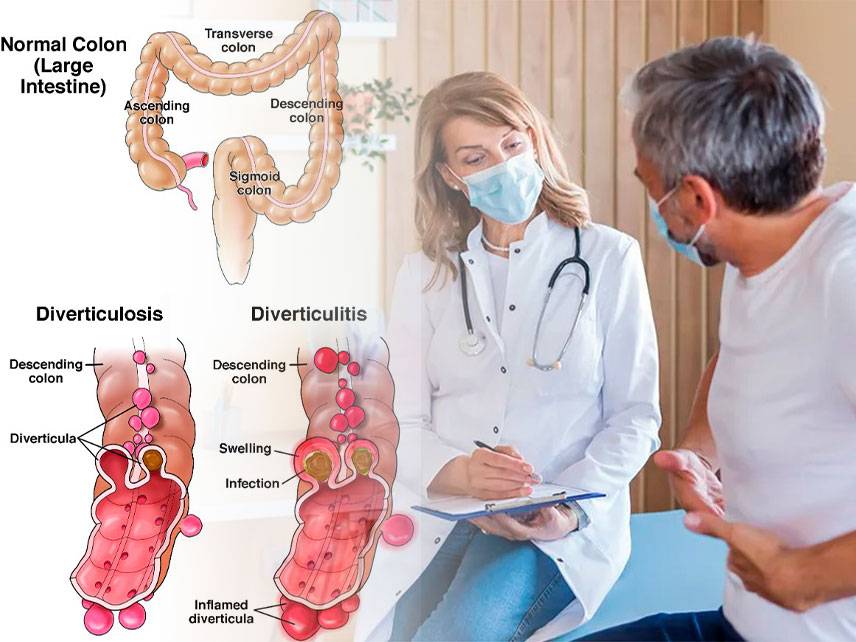Diverticulitis is a condition that affects the digestive system and is caused by the formation of small, bulging pouches in the lining of the intestine. These pouches, called diverticula, can become inflamed or infected, a condition known as diverticulitis. The condition is often painful and may require treatment, but it can usually be managed with lifestyle changes and medication.
Signs and Symptoms
The most common symptoms of diverticulitis include abdominal pain, usually in the lower left side, nausea, vomiting, fever, constipation, and diarrhea. Other symptoms may include bloating, cramps, and blood in the stool.
Causes
The exact cause of diverticulitis is not known, but it is believed to be related to a diet low in fiber. A lack of dietary fiber can lead to constipation, which can cause increased pressure in the colon and lead to the formation of diverticula.
Risk Factors
Certain lifestyle and dietary factors can increase the risk of developing diverticulitis. These include a lack of dietary fiber, smoking, being overweight or obese, and a sedentary lifestyle.
Prevention
Diverticulitis can be prevented by making lifestyle and dietary changes. Eating a high-fiber diet can help reduce the risk of developing the condition. Other preventive measures include exercising regularly, maintaining a healthy weight, quitting smoking, and drinking plenty of fluids.
Diagnosis
Diverticulitis is usually diagnosed based on a physical examination, medical history, and imaging tests such as an abdominal CT scan or colonoscopy. Blood tests may also be used to check for infection.
Treatment
The main goal of treatment for diverticulitis is to reduce pain and inflammation. This may be achieved with antibiotics, fluid and electrolyte replacement, and a low-fiber, low-fat diet. Surgery may be necessary if the infection does not respond to antibiotics.
Coping and Support
Living with diverticulitis can be difficult, but there are resources available to help. Support groups, lifestyle changes, and stress management can all help to manage the condition.
Complications
Complications of diverticulitis include abscesses, fistulas, and perforations, which can be serious and may require hospitalization and surgery.
Living with Diverticulitis
Living with diverticulitis can be challenging, but with the right treatment and lifestyle changes, it is possible to manage the condition and reduce the risk of complications. Eating a high-fiber diet, exercising regularly, and avoiding smoking are all important steps to take when living with diverticulitis.





